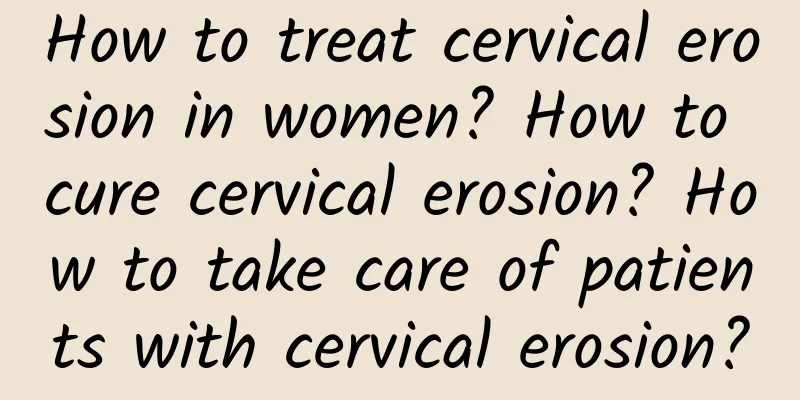Can Bartholinitis be cured in one go?

|
The effect of surgical treatment of diseases is quite obvious. Most diseases can only be completely cured through surgical treatment. Therefore, after people find out about their illness, the first thing they think of is to cure it once and for all. For women, if they suffer from Bartholinitis, they will consider whether they should have surgery or not. Does Bartholinitis require surgery? Inflammation of the Bartholin's glands is mostly caused by invasion of pathogens from the vulva. Antibiotic treatment has a certain effect, but it is often prone to relapse. External treatment with traditional Chinese medicine has a satisfactory effect on repeated infections. In addition, when fumigating the vulva, if possible, also flush the vagina at the same time to keep the entire vulva and vagina clean and hygienic. Once an abscess is formed, it should be incised and drained as soon as possible, and thoroughly drained. At this time, combined with Chinese medicine for internal and external treatment, the pus can be discharged faster and the inflammation can subside quickly. If the abscess is not treated in time, it may occasionally spread to the posterior direction, forming a perirectal abscess, and sometimes even rupture into the rectum. After the acute phase of Bartholinitis, due to the obstruction of the glandular duct, the glandular secretion fluid cannot be discharged and is retained, forming a Bartholin's gland cyst. After the abscess is incised and drained, most of the abscess cavities can be completely closed and healed, but fistulas may occasionally form, with a small amount of secretions continuously discharged. Small and hard nodules can be felt during palpation, with slight tenderness, and pus can sometimes flow out of the fistula when squeezed. Since Bartholin's gland inflammation can lead to secondary infection, surgical treatment should be sought. In the past, cyst excision surgery was often performed, which often caused bleeding. If the cyst wall extended to the vicinity of the urethra, the operation would be difficult, or the cyst wall could not be completely removed, and there was a possibility of recurrence. Severe scars can cause sexual intercourse difficulties, so excision is now only used for suspected malignant lesions. After many years of practice, cystoplasty (marsupial suture) is indeed a simple, safe method with few complications and a low recurrence rate, and it can maintain gland function. Therefore, if you are diagnosed with Bartholinitis, it is recommended that you go to a regular hospital for surgical treatment. According to the severity of your condition, choose the appropriate treatment method and follow the doctor's advice positively and optimistically. In this way, you can solve the problem of Bartholinitis well, get rid of the disease as soon as possible, and become a healthy woman. |
>>: How to completely cure Bartholinitis
Recommend
WFH weight gain? Follow the 4 major nutrients for three meals a day to lose weight and the 5 major principles to easily lose fat
During the epidemic, you are stuck at home and ca...
Do endometrial polyps bleed?
It is generally difficult to accurately determine...
Why does suction occur during abortion?
Aspiration refers to the negative pressure aspirat...
Do physiological cervical cysts need treatment? Some do, some don't
Cervical cyst is a very common gynecological dise...
Can I eat fruit after a miscarriage?
Spontaneous abortion refers to non-artificial abo...
Malignant uterine fibroid bleeding symptoms
Symptoms of bleeding from malignant uterine fibro...
What are the dangers of pelvic inflammatory disease in women?
Pelvic inflammatory disease is divided into acute...
What are the reactions to medical abortion?
What are the reactions to medical abortion? Many ...
Nourishing the liver in spring promotes metabolism and helps lose weight! Chinese medicine doctor Li Congjie: 7 acupuncture points must be pressed to nourish the liver and relieve constipation
Spring is a good season for liver care! According...
Lean flank steak! Jumping left and right with both feet burns fat and helps lose weight
Doctor Lu said: Jumping rope left and right uses ...
What to do if you have chest pain after miscarriage
What to do if you have chest pain after miscarria...
Pumpkin lowers blood pressure and blood sugar, here are 4 health benefits you must know! Nutritionist: Rich in potassium and vitamin A, diabetics should be careful when eating
When I see pumpkins, I think of Halloween. The an...
What are the harms of menopause to patients?
Among gynecological diseases, menopause does not ...
What are the types of cervicitis?
If you suffer from cervical inflammation, you sho...
Sitting for a long time causes shoulder and neck pain and lack of muscle strength... Follow the fitness trainer to stretch the trapezius muscles and spine
In the post-epidemic era, let’s regain our new li...









